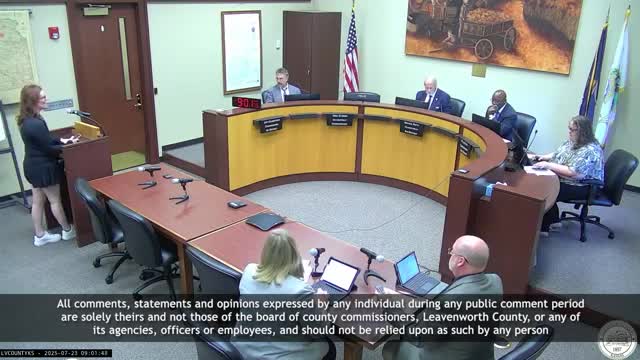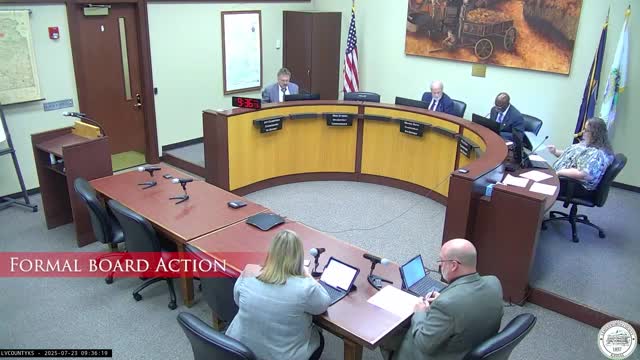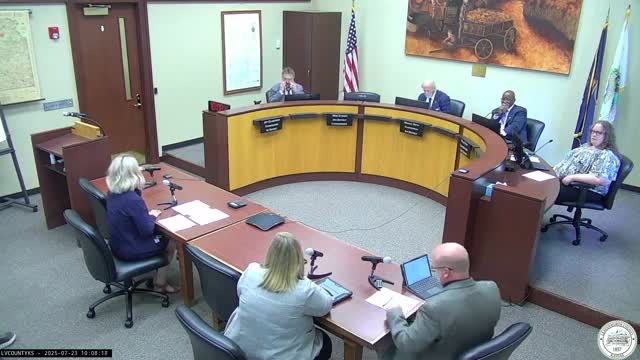Article not found
This article is no longer available. But don't worry—we've gathered other articles that discuss the same topic.

Residents urge Leavenworth County to reject Riverbend Heights RHID, citing taxes and infrastructure

Commission approves rate increases, construction contract and policy updates

